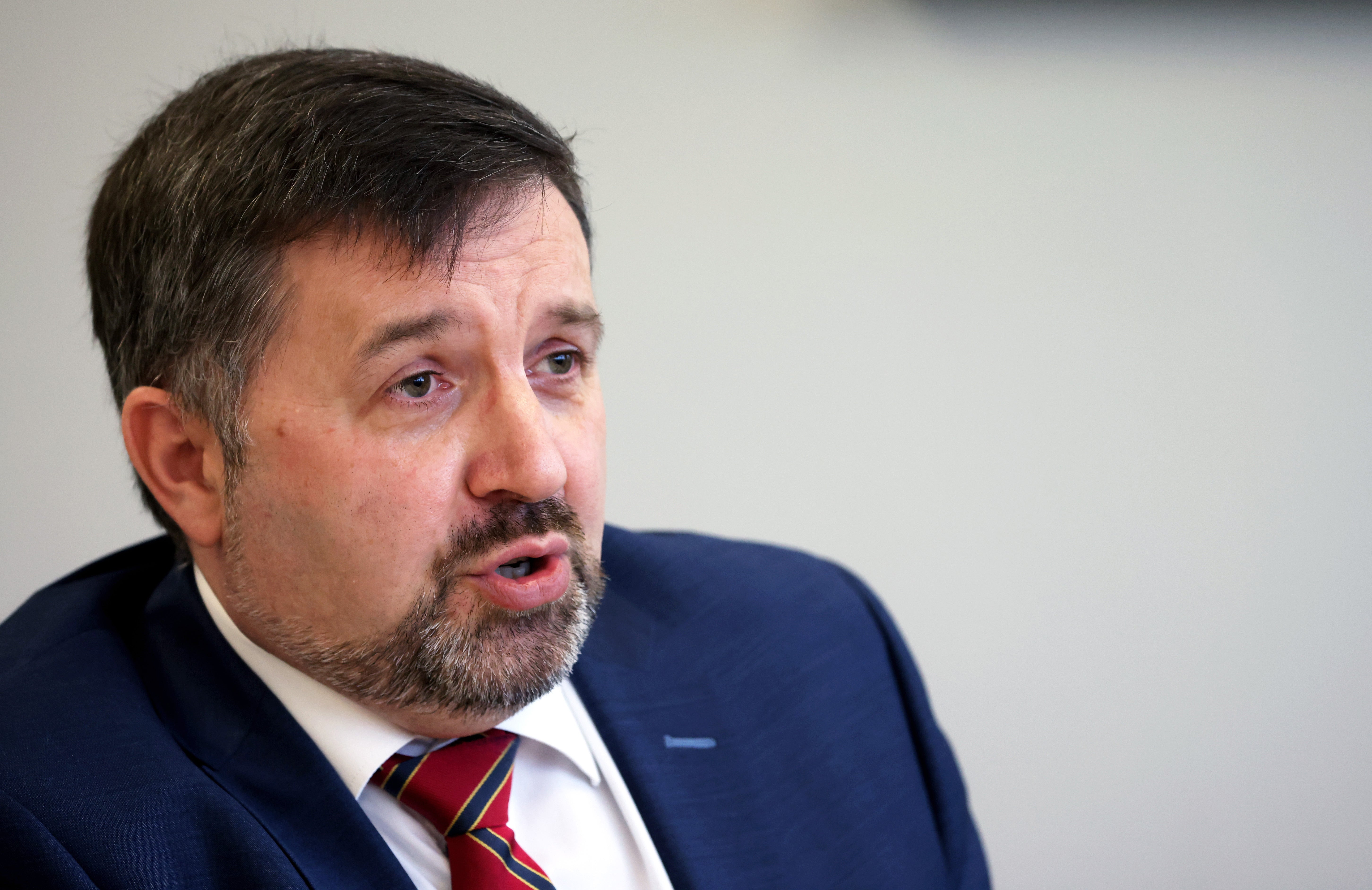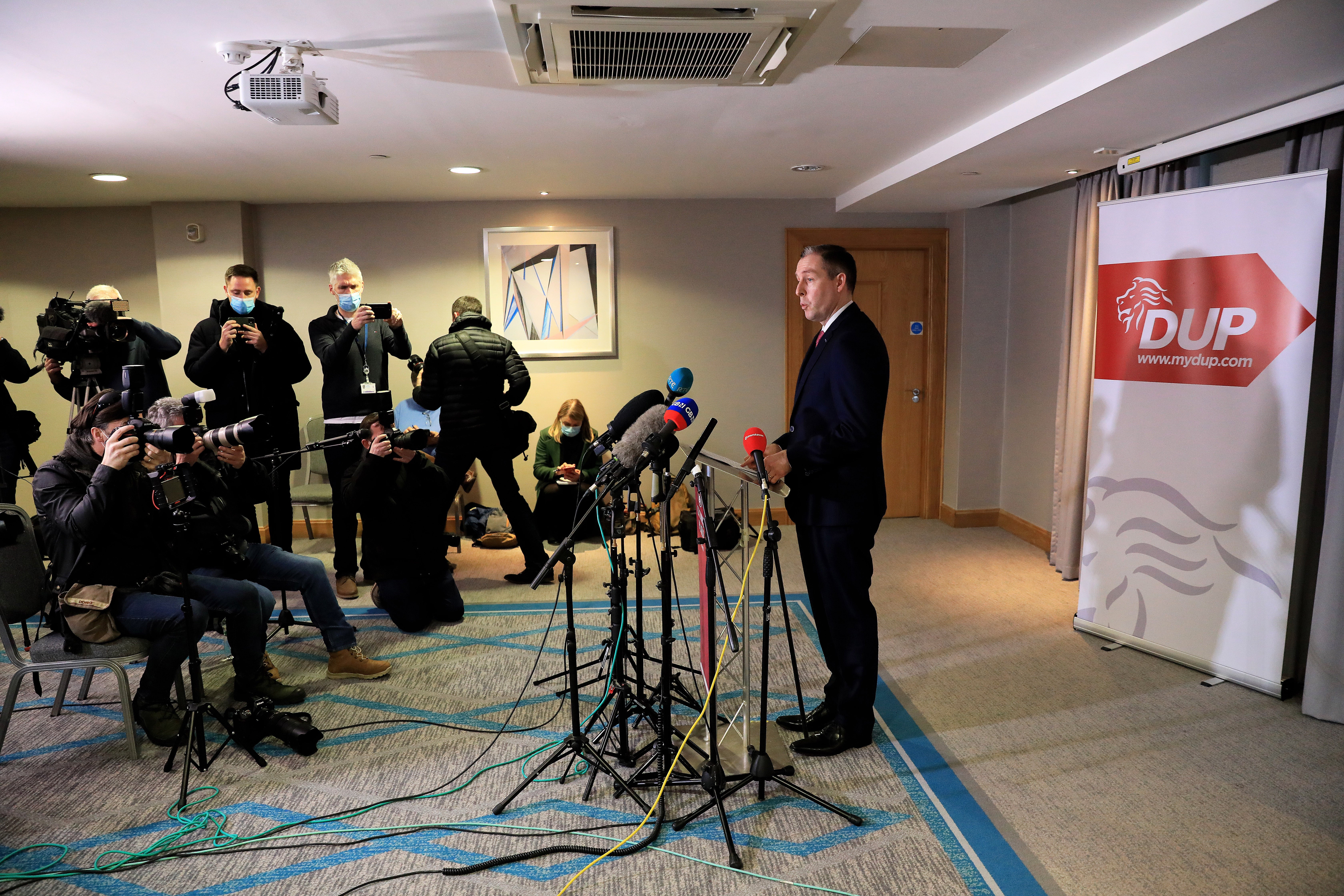
Cancer services in Northern Ireland are facing a “massive perfect storm” due to budget uncertainty and pandemic disruption, MLAs have been warned.
Representatives of leading cancer charities briefed the Assembly’s health committee on the challenges facing the under pressure system.
They said it was vital that a proposed 10-year cancer strategy for the region was implemented and sufficiently funded.
MLAs were told that £184 million of additional funding for cancer care, the majority earmarked for addressing the backlogs caused by the pandemic, was at risk due to the current political crisis at Stormont.

A draft three-year budget for Northern Ireland which included a 10% cash uplift for the Department of Health cannot be progressed following the collapse of the Executive.
The administration lost its ability to take significant decisions when the DUP withdrew First Minister Paul Givan in protest at the Northern Ireland Protocol.
Joan McEwan from charity Marie Curie told committee members that cancer care was on its knees.
“I think there is an assumption that our citizens assume that the services will be there for them and they have assumed that and you don’t know until you’re in that situation,” she said.
“And since the pandemic, all of this has come home to roost.
“People are seeing a system on its knees already and the pressure between the demands that’s obviously increasing late diagnosis and late presentation, a stretched workforce and uncertainty over the budget is just a massive perfect storm coming together.
“And people are now realising that the services that they should have, aren’t there.”

Ms McEwan warned of the consequences of not delivering the cancer strategy.
“Whilst it’s not our place to comment on political issues, I’d add that the failure to deliver on the promise and ambitions of the cancer strategy will have a devastating impact for people with all types of cancer, as well as those who have a terminal diagnosis,” she said.
Margaret Carr from Cancer Research UK said securing funding for the early years of the cancer strategy was the “number one priority” for the leading cancer charities.
“We are now in a situation where we find ourselves with no confirmed budget going forward,” she said.
“In several surveys the public in Northern Ireland have identified health as their main priority and the charities all attending today want a commitment to a three-year budget with a focus on health broadly, but most specifically it must provide funding for the full implementation of the cancer strategy during its critical initial period.
“Cancer patients in Northern Ireland are experiencing delays in diagnosis and sometimes don’t receive the optimum treatments.
“The strategy provides actions which will improve outcomes for patients, actions including preventing more cancers, improving earlier diagnosis, giving more personalised treatment and care, providing the optimum cancer workforce and data systems which can produce timely and usable information to enable better decision making.”
She said transformation of the system was “much needed and long overdue”.
The failure to deliver on the promise and ambitions of the cancer strategy will have a devastating impact for people with all types of cancer.
Richard Spratt from Cancer Focus NI said data analysis indicated that cancer incidences in Northern Ireland will double by 2040.
“It’s going to be difficult to treat our way out of that with the continued insatiable demands on public finance,” he said.
“From our perspective, we feel that cancer prevention and health promotion initiatives too often have been seen as a Cinderella and, in order to save money into the future as well as lives, we feel it’s vital that health promotion and cancer prevention is front and centre when enacting health public policy.”
Alasdair O’Hara from Macmillan Cancer Support said he welcomed the strategy’s “vision and ambition”.
“We fundamentally believe that now is the best opportunity in decades to improve and future proof cancer services,” he added.
“The strategy provides the tools to do that, with a visionary approach to personalised care, a commitment to build the workforce, alongside the cancer recovery plan that provides direction to address the systemic issues that have led to disruption during this pandemic.”
He said there was also an “urgent need” to address “health inequalities in cancer care”.







